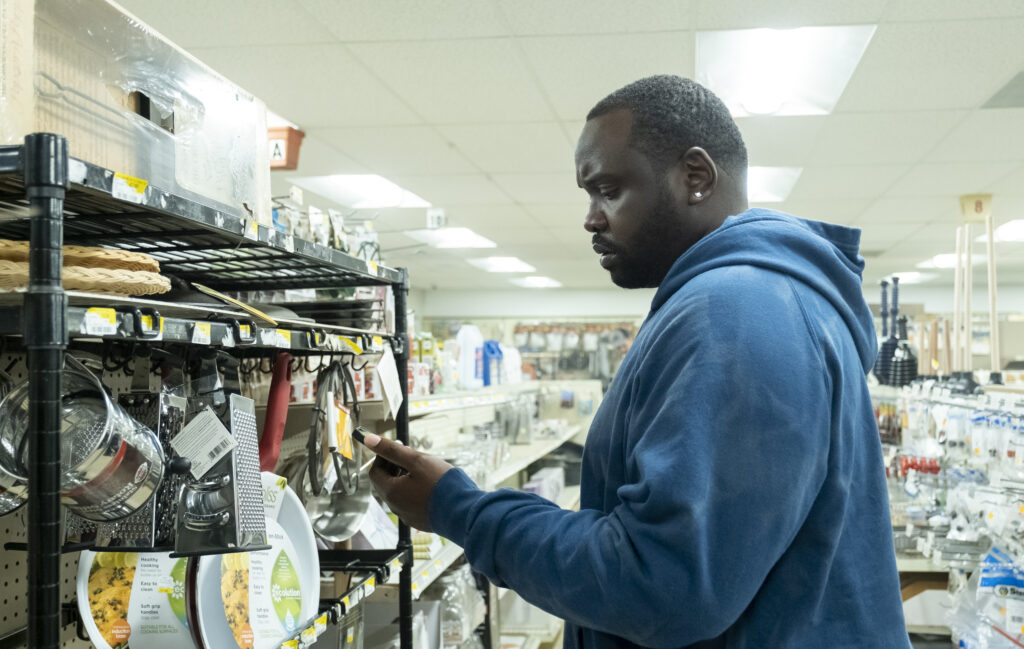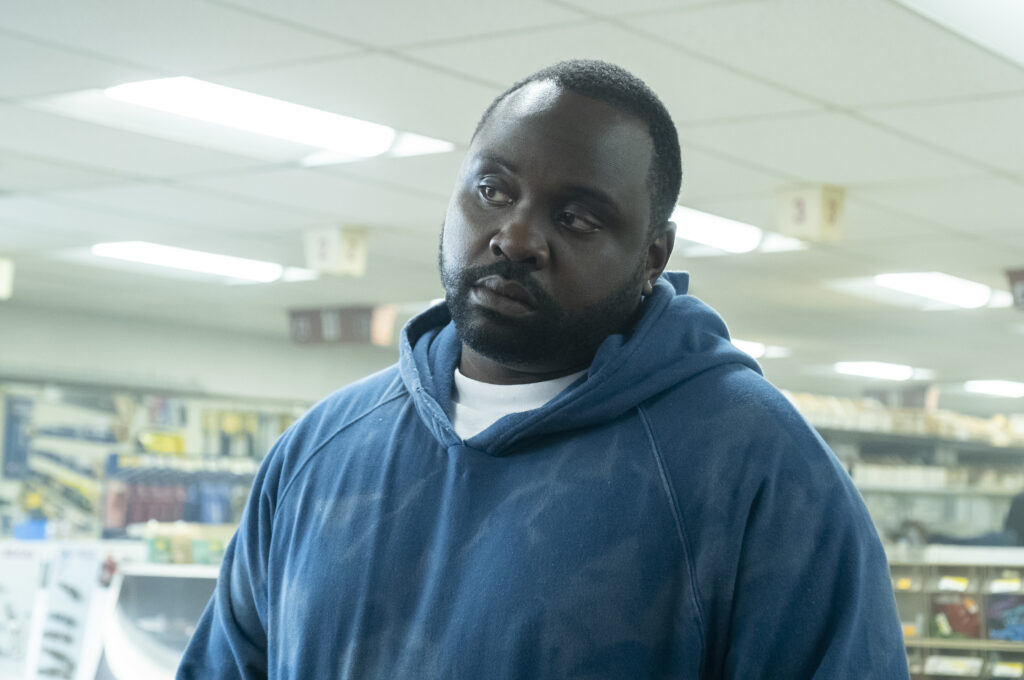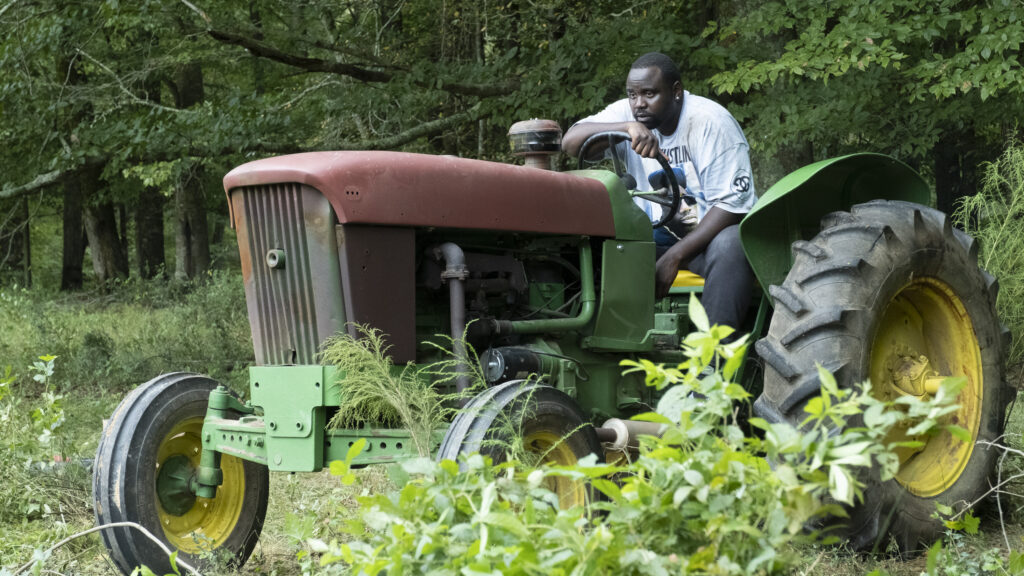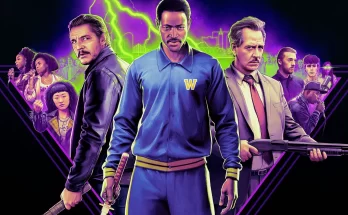Want to hear more from the actors and creators of your favorite shows and films? Subscribe to The Cinema Spot on YouTube for all of our upcoming interviews!
Managing editor & film and television critic with a Bachelor's of Arts in English Literature with a Writing Minor from the University of Guam. Currently in graduate school completing a Master's in English Literature.
I want to skip the Goofy episode for now and instead jump straight into last week’s penultimate episode of Donald Glover’s Atlanta. While my previous review of the hit FX surreal comedy-drama television series focused on the family dynamic, this current episode centers on Alfred “Al” Miles (Brian Tyree Henry), who doesn’t seem to go by Paper Boi from the looks of it.
The ninth episode of the series’ final season is titled, “Andrew Wyeth. Alfred’s World”. It is written by supervising producer Taofik Kolade and directed by executive producer Hiro Murai.
In this review, I will be discussing Atlanta Season 4 Episode 9. There will be spoilers here, as the title of this article suggests. Nonetheless, please read ahead at your own discretion.

Plot Synopsis
According to FX Networks, here is the logline for Atlanta Season 4 Episode 9—“Andrew Wyeth. Alfred’s World”.
They always making Paper Boi go through something.
FX Networks Press Room
Discussion
Yes, I am sad that Atlanta is coming to an end. Yes, it is more than likely that I will be empty once it does, and yet, its legacy will live on. “Andrew Wyeth. Alfred’s World” is titled after the late realist painter, Andrew Wyeth. It depicts a lifestyle of normalcy for the (former?) rapper as a result of the events that occurred in Season 4 Episode 6, “Crank Dat Killer”. Since the series’ writers involve a realist in the writing of this episode’s narrative, we must first define what that exactly means. According to Britannica, realism is defined as follows:
“[T]he accurate, detailed, unembellished depiction of nature or of contemporary life. Realism rejects imaginative idealization in favour of a close observation of outward appearances.
Britannica
Like a previous episode, “Snipe Hunt”, this episode continues to examine nature as a force or source of life that co-exists with humankind. However, what makes this newer narrative different is the fact that whatever happens could or will happen. Such is the case with Miles. His newer lifestyle on his “safe farm” — a portmanteau of “State Farm” and “safe house” (thank you, Soulja Boy) — is simple. Although, this lifestyle cannot be without the intrusion of nature… and in this particular case, machines.
The Environment: Good or Bad?
At the beginning of the episode, Miles finds an exposed hole in the corner of the door — the door to the shed where he grows his “special” plants. This hole is big enough for a rat to fit through. Eventually, this leads him to defend himself from a large, feral hog. Along the way, the character also tasks himself with repairing a broken tractor. I just find it ironic how we, as human beings, rely on YouTube videos (from digital technology, aka machines) to learn how to interact (in Miles’s case, fix) machines, such as vehicles.
The rat scene is hilarious, and I am curious whether it was a rat or a baby hog that left a gap in the shed door. By the time the tractor is repaired, I started to be concerned about whether whatever he is doing is necessary. Could it blow up once he turns the key? It turns out that it didn’t, but instead, he does get into a harsh accident with it. Fortunately, the tractor only fell onto Miles’s leg. The scene cut to black and returned from the commercial break. It took a moment to fade back, and I had thought that the machine killed our dear beloved character.
One issue with digital technology is that it can consume a lot of attention. On one hand, Miles learned from “These Backhoes Ain’t Loyal” (Jourdan McKay) to not position himself under the tractor or else he would be crushed to death. However, when he later crawls home, he screams his lungs out at an Amazon worker, who doesn’t hear him at all because… Ironically, she is listening to music at a loud enough volume. I also believe that it’s convenient that the worker delivered the cast iron skillet around this time. Miles uses the skillet (a product from machines in factories, perhaps) to kill the large hog.
Nature Through Enlivenment and Posthumanism
According to what philosophers and theorists have said about enlivenment and posthumanism, it isn’t enough for our lives to be improved with the technologies and machines that we have around us. It is incumbent on us as human beings to establish a necessary co-existence with other species. While enlivenment asks that we become one with nature, posthumanism also asks that we live properly with technology. From a realist point of view, if the tractor was supposed to kill Miles, then it would have. The same goes for the feral hogs. However, the writers are telling us that his time has not yet come despite every sign we may have seen that suggests so.
Still, I cannot help but wonder… Clyde (Steve Coulter), a man working behind a cash register with a Confederate clock hanging over his head, tells Miles the following:
I don’t think you understand. This is serious. Now, these things, they ain’t no bedtime animals. They don’t deserve no sympathy. They are aggressive, they are invasive, and they will not stop until they destroy everything you have. You got to kill them before they kill you.
Clyde (Steve Coulter) in Atlanta Season 4 Episode 9—“Andrew Wyeth. Alfred’s World” (11:07-11:40)
Are the hogs meant to symbolize something specific? Could they be police officers, or could they be minorities (Black people, persons of color, members of the LGBTQIA+ community, women, etc.)? Who are the hunters suggested through this quote, and who are the hunted?
Endings… What of It?
At the end of the episode, Miles FaceTimes his cousin, Earnest “Earn” Marks (Donald Glover), who states: “Atlanta’s not going anywhere, you know”. I thought this is a touching line that is not just directed from one cousin to another but to the audience and fans as well. This brings me back to last September in a review where I cited Abed Nadir’s monologue via the Community series finale — a television program in which Glover had also starred. In that episode of Dan Harmon’s sitcom, the character says, “TV [is] a friend you’ve known so well and for so long [that] you just let it be with you…”
Atlanta may end this week on its fourth season, but what is the worst thing that could happen? Will it cease to exist on streaming platforms after the final episode airs? (Zaslav, shame on you…) Glover and his writers’ room remind us that “Atlanta” is not just a place in Georgia, USA. Atlanta is a mindset that you can carry with you wherever you go. This is an idea that they aimed to accomplish in their third season by allowing the series to also take place in Europe and in New York.

The Crew of Atlanta
Donald Glover, Paul Simms, Dianne McGunigle, Stephen Glover, Hiro Murai, and Stefani Robinson serve as the executive producers of the series. Janine Nabers serves as the co-executive producer, while Kathryn Dean and Kaitlin Waldron serve as the producers. Ibra Ake, Taofik Kolade, Jamal Olori, and Francesca Sloane serve as the supervising producers. Jordan Temple, David Swinburne, and Christian Sprenger serve as co-producers.
Alexa L. Fogel serves as the casting director. Tara Feldstein Bennett and Chase Paris serve as the Atlanta casting directors. Kathryn Zamora-Benson is the casting associate.
Christian Sprenger serves as the director of photography. Isaac Hagy and Kyle Reiter serve as the editors for this episode of Atlanta. Jen Bryson and Cameron Ross serve as the assistant editors. Eric Binmoeller works on visual effects, while Ashley Sengstaken serves as the visual effects coordinator.
Jen Malone and Fam Udeorji return as the music supervisors, with Whitney A. Pilzer as the associate music supervisor.
Timothy O’Brien serves as the production designer, while Taylor Mosbey serves as the art director. Tiffany Hasbourne serves as the costume designer. Liz Ayala is the set decorator. Denise Tunnell is the head of the make-up department, while Shunika Terry is the head of the hair department.
The Cast of Atlanta
Brian Tyree Henry portrays Alfred “Al” Miles, while Donald Glover appears as Earnest “Earn” Marks. LaKeith Stanfield and Zazie Beetz are credited as their respective main characters, Darius Epps and Vanessa “Van” Keefer, respectively.
Steve Coulter guest stars as a hardware store worker named Clyde.
Jourdan McKay co-stars as a YouTuber, T.B.A.L., or “These Backhoes Ain’t Loyal”.

Alfred’s Performance and Character Development
Henry has been an excellent actor in Atlanta throughout its four seasons in six years. It is just a shame that the Television Academy still has not yet given this actor an Emmy Award. He’s had some performances this season that I found to be better than others. I believe “Crank Dat Killer” features his best one and that this current episode and the final season premiere, “The Most Atlanta”, are tied close to second place.
I am thankful that the writers’ room chose not to kill off this character. There have been ominous signs in “Born To Die” and in “Crank Dat Killer” that suggested this would happen, but I guess not all rappers die a tragic death… so Paper Boi (or shall we call him, Alfred?) gets to live another day. After what happened in last season’s “Cancer Attack” episode, I am glad that he is at least slightly aware of his surroundings. While the YouTube video did give him a warning, the fact that the tractor fell from a greater height and he still lived — his body remaining intact — gave him the insight to know that he must be completely conscious of his environment.
Final Thoughts on Atlanta Season 4 Episode 9
“Andrew Wyeth. Alfred’s World” is simplistic in its showcasing of a life with nature and machines. The episode paints a pretty picture of what would actually happen, that death isn’t as freaky as it is in Final Destination or anything as insane. I like the hoodies and the sweatshirt that Hasbourne designed for Henry and his character. O’Brien and Mosbey do a great job at the “safe farm” set piece. More than anything, however, what continues to amaze me is Malone, Udeorji, and Pilzer’s inclusion of the music. André 3000, Cee-Lo Green, Ray Charles, along with other magnificent voices in one episode make an excellent combination.
It is sad that the show has to come to a conclusion this week, but all good things have to end sometime. As Marks/ Glover said, it isn’t going anywhere. Atlanta will always be by our side.
Donald Glover’s Atlanta Season 4 is now airing on FX and is streaming via Hulu!
Have you seen Glover’s series? If so, then what are your thoughts on it so far? Let us know! For more comedy and drama-related news and reviews visit and follow The Cinema Spot on Facebook, Twitter, and Instagram!
Managing editor & film and television critic with a Bachelor's of Arts in English Literature with a Writing Minor from the University of Guam. Currently in graduate school completing a Master's in English Literature.





16 Comments on “‘Atlanta’ Season 4 Episode 9 Spoiler Review – “Andrew Wyeth. Alfred’s World””